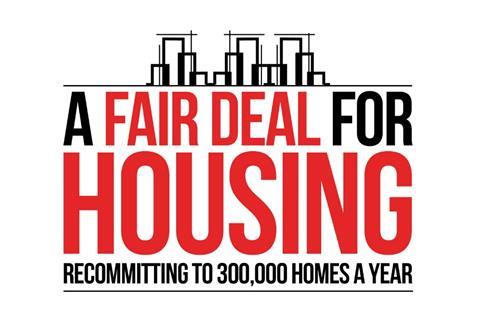Housing secretary wants planning authorities to take a less “bureaucratic” approach to urban development
Michael Gove has announced changes to national planning policy in a bid to force councils to accelerate brownfield development.
The housing secretary, as part of a raft of policy announcements this week, has today published a consultation paper on plans to require planning authorities to take a less restrictive approach when it comes to considering applications for development on brownfield sites.

The government is proposing to require planning authorities to give “significant weight” to the benefits of delivering as many homes as possible, especially on brownfield land.
The proposed change would require councils to “take a flexible approach” in applying planning policies relating to the internal layout of development where it would “inhibit making the efficient use of the site.”
A Department for Levelling Up, Housing and Communities (DLUHC) spokesperson said: “Every council in England will be told that they will need to prioritise brownfield developments and instructed to be less bureaucratic and more flexible in applying policies that halt housebuilding on brownfield land.”
The government is also proposing to include a “presumption in favour of brownfield development” in the top 20 most populous towns and cities in England where housing delivery falls below an acceptable level. This is defined as a score below 95% in its annual housing delivery test.
The presumption would mean permission for development on brownfield sites should be granted in more circumstances.
DLUHC said: “This new approach will put rocket boosters under brownfield regeneration projects across the country and provide the new homes the country needs, without affecting existing protections including for residential gardens, and ensuring protection for the character of suburban neighbourhoods.”
In an article in The Times this morning, prime minister Rishi Sunak defended the decision to limit the measure to England’s largest 20 cities and towns.
He said: “There’s little point in trying to force large new estates on our countryside and green belt when that is where public resistance to development is strongest and where the GP surgeries, schools and roads don’t exist to support new communities.”
Ministers took the decision to propose a presumption in favour of brownfield development after the measure was recommended for the capital in the London Plan Review, published today.
This review, launched by Gove in response to his concerns about delivery in the capital and led by KC Christopher Katkowski, said the presumption could lead to between 4,000 and 11,500 additional homes per year in London. Gove is now proposing to extend the measure to 19 other highly populated urban areas.
The government also published proposed changes to permitted development rights to make it easier for developers to convert commercial buildings, including shops and offices, into new homes, as well as demolishing unused buildings, bringing empty sites into development and installing heat pumps.
>>See also: Boosting development to 300,000 homes a year and beyond: our initial recommendations
>>See also: Key takeaways from Gove’s big planning speech
>>See also: Gove and Khan’s row over London’s housing delivery numbers explained
>>See also: The revised planning framework is not as bad as feared - but don’t thank Gove
The consultation also contains measures to make it easier for homeowners to extend their homes outwards and upwards by increasing the circumstances in which extensions can be made without planning permission.
Today’s announcements follow DLUHC yesterday announcing a £3bn extension to the Affordable Homes Guarantees fund, doubling the amount of loan finance initially available through the scheme. The scheme allows registered providers to access private development finance at a cheaper rate as the government guarantees the debt.
The government in December published its long-awaited response to its National Planning Policy Framework changes, confirming that it is watering down housing delivery targets for local authorities but plans to introduce “sharper accountability” in the form of league tables for planning authorities.
Housing Today’s A Fair Deal for Housing campaign last month called for a review of affordable housing funding and changes to the planning system in a bid to boost development to 300,000 homes a year and beyond.
A Fair Deal for Housing

Housing Today’s A Fair Deal for Housing campaign is calling for the government to launch a review to look how to increase affordable housing delivery to 100,000 homes a year.
This should consider overhauling existing funding for affordable housing so that a more ambitious programme can be delivered.
The report suggests the review could look at grant rates for affordable housing, a longer-term rent settlement for social housing providers, a time-limited stimulus package to counteract the high cost of private funding and at mechanisms to lever in more institutional finance for ‘for-profit’ registered providers.
The campaign is also caling for measures to reform the planning system, boost private housing delivery and make regeneration easier.










No comments yet